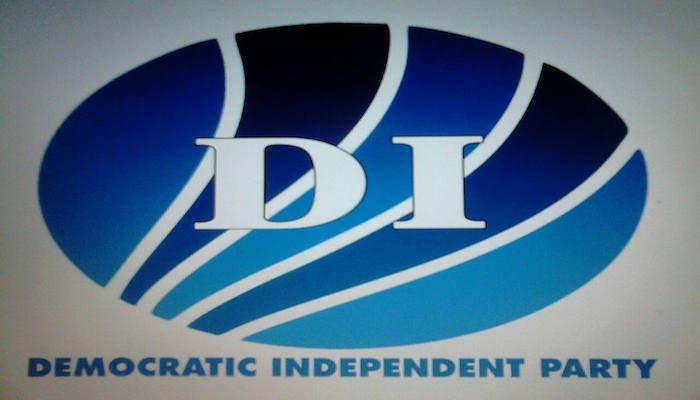While numerous parties fight to be recognised amongst the throngs of their opposition, one party is saying that it is here to work for the people and not for glamour. The Democratic Independent party (DI), which was launched in early 2016, is directed toward empowering the poor and says that it will provide a fresh alternative for voters. The newly fledged party was given its introduction to the community on air on Friday, as part of a weekly discussion on the local government elections.
DI president, Councillor Anwar Adams, who was previously a member of the Pan African Congress, explains that the DI is presenting an alternative for communities in the upcoming local elections. He says that while the party’s name was finalised at the end of 2015, the leaders of the party have for the past seven years been actively involved in assisting communities throughout the Cape.
Adams says the party intends to work to assist the Muslim community in addressing pressing issues that it is constantly faced with.
“Especially relating to acquiring land for both mosques and churches and general Muslim issues, such as alcohol and how it affects our community,” he explains.
In light of the growing number of Muslim-led political parties, he asserts that the DI has championed Muslim issues in City Council. Adams further notes that since Muslims constantly relocate to ‘non-Muslim’ suburbs, they are met with new challenges, which the party intends to address.
“We have been working with the Thornton Islamic society and assisted them when their water was switched off and where the building of a mosque is concerned.”
The continued gentrification of the Cape
With regards to the continued gentrification of Cape Town, Adams affirms the DI’s support for frustrated residents.
“We support the Bo-Kaap Association in their fight and where the council wants to sell off land where you get unscrupulous developers. This is about gentrification and what the City Council thinks is best.”
The meagre ten per cent of community members who are involved in the public participatory process is not adequate.
“In everything that happens in a community, you need proper and consultative public participation. The communities must have buy-in and ownership of a development,” Adams continued.
The continued rising costs of rates and taxes in areas earmarked for development has resulted in the forceful ejection of families who have lived in certain areas for generations. In light of the City’s budget of approximately R40 billion, Adams says that it is unacceptable that people continue to sleep on the street.
He, therefore, asserts that a decisive plan needs to be developed that will facilitate the growing human settlements problem.
Unequal division of municipal services
As service delivery protests continue to spread within the cape Flats, Adams asserts that community members from impoverished areas have not been adequately serviced.
“If you go into affluent areas you will find council workers cutting grass, trimming trees, and no pot holes.”
He notes that only prior to elections does the City work to improve services within the less affluent areas, which Adams says speaks to the lack of genuine concern for working communities.
“If you go into informal settlements where they experience electricity cuts, yes you will see illegal connections, because they need to keep warm!”
In response to the City’s claim that Cape Town is the best city in the world, Adams says that the research did not take into consideration the improvised areas.
While he admits that he believes Cape Town to be the most beautiful City, he says that the City needs to take into consideration the socio-economic constraints that millions continue to struggle against.
“You must see the dirt in these informal settlements. Ten toilets for 3000 people; even if its ten toilets for 100 people it’s still pathetic. People do not have running water and proper sanitation – this is totally unacceptable.”
He says that the plight of citizens residing within informal settlements is as a direct result of non-proactive city planning.
“There is no excuse that we can make to say that we cannot make this a better city than what it currently is – a better city not only for the affluent, but for the poorest of the poor.”
Consultative processes
The party’s national deputy secretary-general, Habibah Sonday, explains that in addition to addressing issues faced by Muslims, the party will focus on the most marginalized within society, including the poor and the youth.
Sonday explains that while the manifesto of the IDP is its completion phase, the party’s consultative processors focussed on finding solutions for the upliftment of the poor.
Adams says that the party will speak to the integration of religions, culture, and ethnicities.
“When you fill in your form, they don’t ask you for your colour, they ask for your race. So stipulate that you part of the ‘human race’.”
In addition, the party has included within its structures a ‘women’s voice’ and a ‘youth voice’, which will be included in provincial and national decision making processors.
Since the party’s ethos is structure around ‘no-segregation’, Adams encouraged all DI supporters to wear any shade of blue when attending its rally.
“It’s not just about building a party. For us it is about empowering and uplifting our communities – and building a better nation.”
The Democratic Independence party will officially be launched on July 9, 2016 at the Athlone Stadium from 9am to 4:30pm.
VOC






 WhatsApp us
WhatsApp us 

